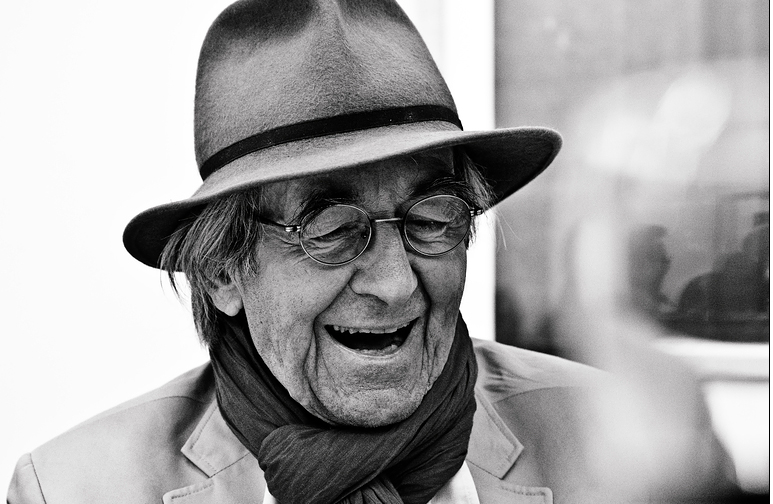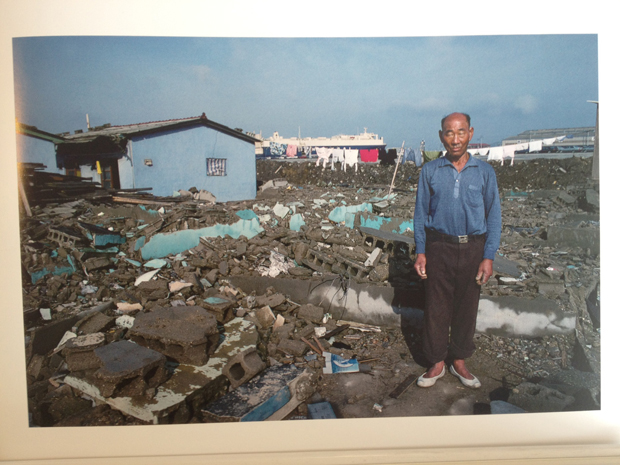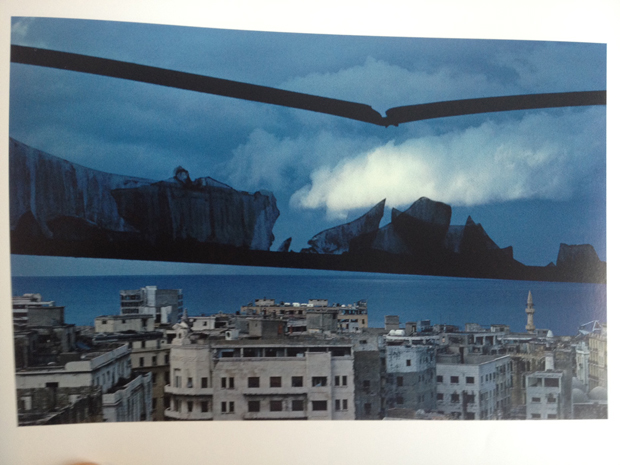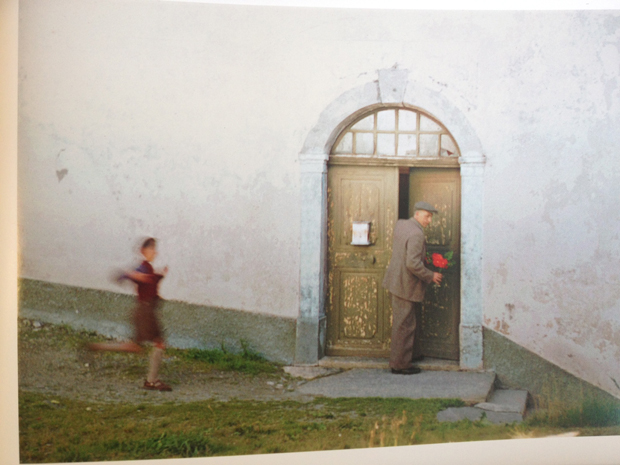
René Burri's Impossible Reminiscences #4
The view from a war torn Beirut window, the cost of 'man's progress' and a wry tale concerning William Tell - all taken from his brilliant new book of previously unpublished colour photography, Impossible Reminiscences
Magnum photographer René Burri is giving a talk in London next Wednesday (April 24) at the Photographer's Gallery where he'll also be signing copies of his new Phaidon book Impossible Reminiscences. The evening promises to give a fascinating insight into the life of this great chronicler of world events. But if you can't make it along to hear René speak in person we've put together another little selection of his memories - the fourth in our series - all taken from the new book Impossible Reminiscences. Once again, bear in mind the images you see here were taken on an iPhone and don't represent the quality of printing in the book. Hope you enjoy René's stories.

Incheon, South Korea 1987 In the background is one of the huge container ships on which they load recently manufactured cars.there were hundreds of cars parked waiting to be shipped out. They needed more parking spaces for the cars, so they just started bulldozing everything, including homes, to make more car parks. This resident stood there like a tragic statue on the rubble of his home. He looks devastated but behind him is man’s ‘progress’ which always happens at the cost of somebody else.

Beirut, Lebanon 1991 At first site this picture is a mystery. The shapes above the buildings looks like icebergs but they were fragments of glass in the window that were stuck together with Sellotape. The office block was empty and felt like being in an aviary; Beirut’s aviary. The Syrian army had taken control of the whole area and there was practically nobody about; it was very eerie. Before the civil war, which ended in 1990, this district had been very stylish and fashionable but when I took the picture it was in complete ruins. Previously there had been an avenue that had extended all the way down to the sea and a large square, which I think was called Liberation Square, which stood completely empty. Subsequently, during the 1990s, with more money around, this area was developed once again and became known as ‘downtown’ Beirut.

Altdorf, Switzerland 1965 I was in Altdorf doing a story about William Tell, Switzerland’s Che Guevara.The picture reminds me of the legend in which the Austrian tyrant, Albrecht Gessler, hung his hat from a pole in the village square where Tell lived and ordered that all villagers should salute it as they passed by. Tell refused to do so and was arrested. As he was a renowned archer, the punishment was that he and his son would be executed unless he could successfully shoot an apple off the head of his son in a single try. Tell succeeded but Gessler noticed that Tell had had a second arrow poised, which he returned to his quiver. When Gessler asked what the second arrow was for, Tell replied, “If I had missed the apple and shot my son, the second one wouldn’t have missed you.’ He was arrested again but, while being transported to prison by boat, he escaped during a storm, and later shot the tyrant. It’s such a wonderful, imaginative story. Buy René Burri's Impossible Reminiscences in the Phaidon online store now.